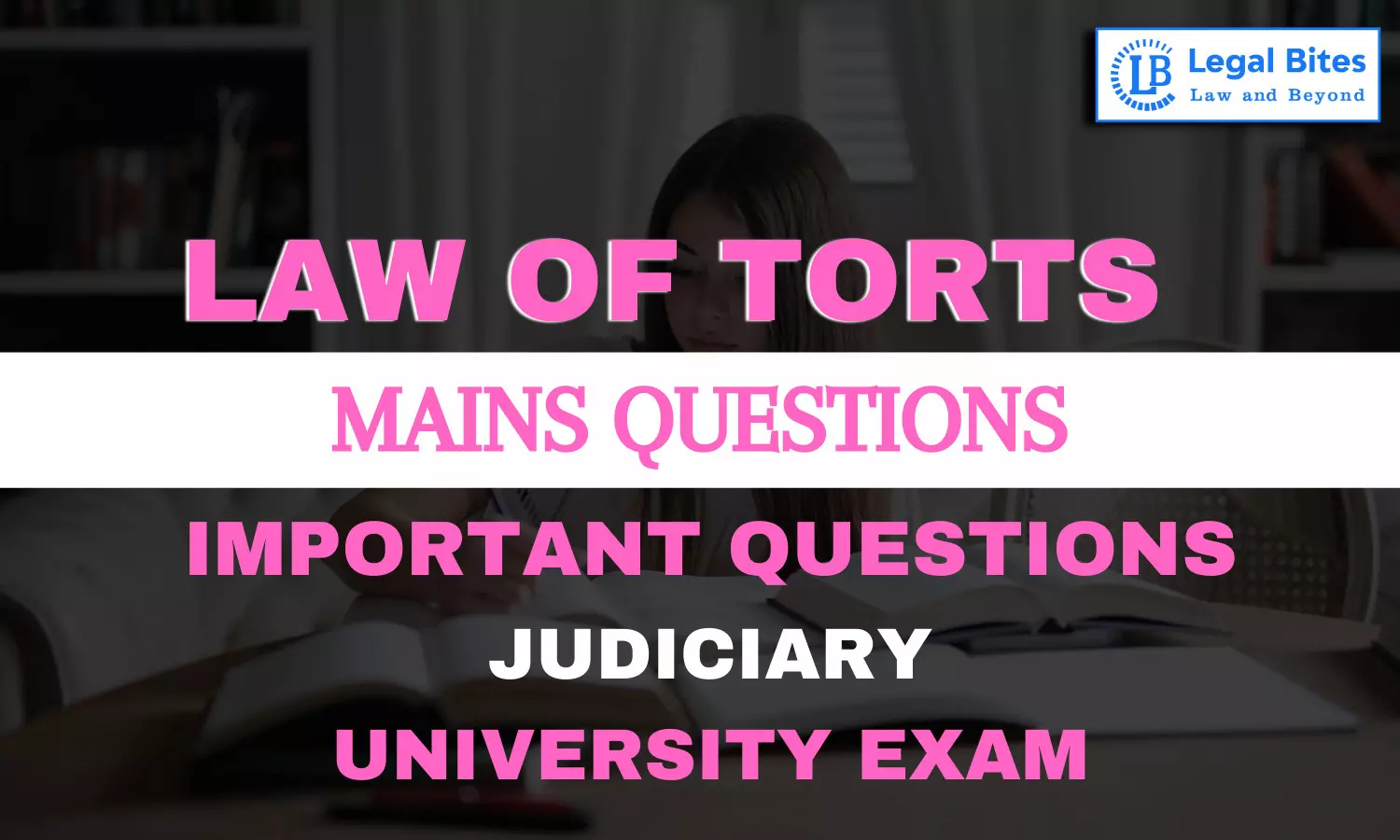Is it necessary that to become a crime, an act must be tort? Discuss
Find the question and answer of Law of Torts only on Legal Bites.

Question: Is it necessary that to become a crime, an act must be tort? Discuss [BJS 2014]Find the question and answer of Law of Torts only on Legal Bites. [Is it necessary that to become a crime, an act must be tort? Discuss]AnswerNo, it is not necessary that to become a crime, an act must be a tort. The concepts of tort and crime are distinct, and an act may be a crime without necessarily being a tort. Tort law is concerned with civil wrongs that result in harm or injury to another person....
Question: Is it necessary that to become a crime, an act must be tort? Discuss [BJS 2014]
Find the question and answer of Law of Torts only on Legal Bites. [Is it necessary that to become a crime, an act must be tort? Discuss]
Answer
No, it is not necessary that to become a crime, an act must be a tort. The concepts of tort and crime are distinct, and an act may be a crime without necessarily being a tort. Tort law is concerned with civil wrongs that result in harm or injury to another person. The focus of tort law is on compensating the victim for the harm suffered, rather than punishing the wrongdoer. In contrast, criminal law is concerned with offences that are considered harmful to society as a whole, and the focus is on punishing the wrongdoer.
There are many acts that are crimes but are not torts. For example, speeding on a highway is a criminal offence but is not a tort. If a person is caught speeding, they will be punished by the criminal justice system, but the victim of the offence (if any) will not be able to bring a civil lawsuit against the offender to recover damages.
One of the landmark cases that illustrate this point is R v. Dudley and Stephens, (1884) 14 QBD 273. In this case, the defendants were shipwrecked and adrift in a lifeboat with limited supplies. They decided to kill and eat one of their fellow passengers in order to survive. They were rescued and charged with murder. The court held that the defendants were guilty of murder, despite the fact that they had acted out of necessity. The court stated that there are some acts that are so repugnant to society that they must be punished, regardless of the circumstances.
Another example is the offence of driving under the influence of alcohol or drugs (DUI). DUI is a criminal offence, but it may not necessarily give rise to a tort claim. If a person is injured in a car accident caused by a drunk driver, they may be able to bring a civil lawsuit against the driver to recover damages. However, if the drunk driver is arrested and charged with DUI, they will be punished by the criminal justice system, regardless of whether or not there was an injury.
In some cases, an act may be both a tort and a crime. For example, assault is both a tort and a crime. If a person is physically attacked by another person, they may be able to bring a civil lawsuit against the attacker to recover damages for the harm suffered. At the same time, the attacker may be charged with assault under criminal law and may be punished by the criminal justice system.
It is not necessary that to become a crime, an act must be a tort. The concepts of tort and crime are distinct, and an action may be a crime without necessarily being a tort. The focus of criminal law is on punishing the wrongdoer, while the focus of tort law is on compensating the victim for the harm suffered. There are many acts that are crimes but are not torts, and vice versa. However, some acts may be both a tort and a crime.

Mayank Shekhar
Mayank is an alumnus of the prestigious Faculty of Law, Delhi University. Under his leadership, Legal Bites has been researching and developing resources through blogging, educational resources, competitions, and seminars.
